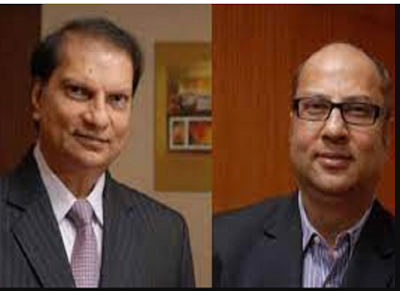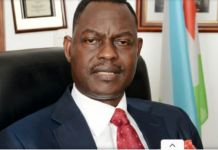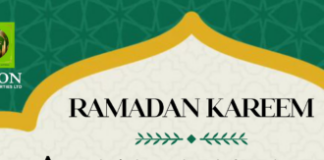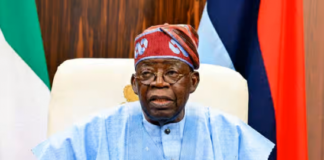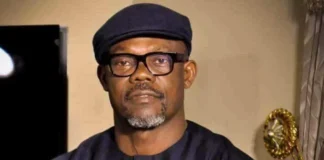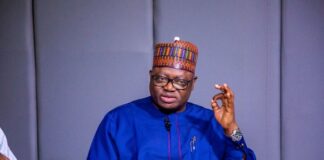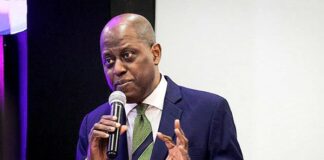There is a thin line between diplomacy and indiscretion, and Nigeria skirts its borders. No thanks to the Federal Government’s dealings with Indian fugitives, Nitin and Chetankumar Sandesara, the country flirts with the ‘pious’ frauds of friendship.
The Sandesaras are driving Nigeria’s oil aspirations at a time when multinationals, ExxonMobil and Shell, are quitting the nation’s oil fields. Shell, TotalEnergies, and ExxonMobil cite theft, oil spills, insecurity, and corruption as their reasons for leaving. And so far, ExxonMobil has vigorously shopped for a buyer for its $1.2 billion shallow-water assets in the country.
Against the backdrop of their impending exit, the Sandesaras’ Lagos-based Sterling Oil Exploration and Energy Production Company (SEEPCO) has emerged as a major player in Nigeria’s oil sector. Arguably the largest independent stakeholder in the industry, SEEPCO flourishes at a time Nigeria seeks to increase its daily oil output by over 60% to 2.6 million barrels by 2027.
It all looks good from the distance, as the Indian duo cut a perfect portrait of enterprising siblings whose industry establishes as a driving force of Nigerian oil and gas.
But for a snag. The Sandesaras are wanted in India for defrauding public sector banks of over $1.7 billion in 2017. About $2.1 billion, revealed India’s Central Bureau of Investigation (CBI).
Thus while India hunts them as criminals, accusing them of perpetrating “one of the largest economic scams in the country,” (Bloomberg), Nigeria courts the Sandesaras like dearly loved brides.
The Indian authorities behold the pair’s growing influence in abject mortification, ruing their growth from frantic fugitives to virtuoso magnates adept at “state capture” of influential segments of Nigeria’s political class.
A staff of the Indian High Commission marvelled at Sandesara’s meteoric rise in Nigeria and berated the government for granting them a safe haven and cuddling them. She said, “Everywhere they go, they establish their influence. It is the Sandesara magic. You can’t fight them. If you do, you cannot win. They will win you over by hook or crook. If you dare to go against them, they will reduce you. The choice is yours.”
Of course, many choose to be won over. Thus the brothers’ overwhelming influence from India to Albania and Nigeria. There is no gainsaying the reach of the Sandesara magic in Nigeria. Aside from contracting their Sterling Oil group to exploit the recently discovered oil reserves in the Niger Delta, the Federal Government has reportedly granted the Sandesaras Nigerian citizenship of the country.
Anatomy of a scam
But why are the Sandesaras hunted back home in India? Findings revealed that they fled their homeland six years ago after their Gujarat-based business empire was accused of manipulating the balance sheets of Sterling Biotech, their flagship company. So, they induced banks to sanction loans worth more than $700 million.
Further probe revealed that about $1.08 billion more was sanctioned to Sandesara Group’s overseas entities from foreign branches of Indian banks.
State-run Indian lenders such as the State Bank of India, Bank of Baroda, and Union Bank of India extended credit lines to their Nigerian oil business, according to India’s Central Bureau of Investigation (CBI).
Investigations by India’s Enforcement Directorate and the CBI established that the Sandesaras set up over 300 shell companies in India and abroad, which they used to divert and misuse loan funds. According to the agencies, these shell firms were controlled by the Sandesaras through dummy directors, who were employees of other firms in the Sterling Group. Fake sales and purchases were shown between the shell firms to divert loans, inflate earnings and apply for more loans.
Indian Prime Minister, Narendra Modi’s government accused the brothers of absconding after defrauding public banks of more than $1.7 billion.
Before the unravelling
En route to infamy, the Sandesaras were the poster boys of affluence. Just before they became the subjects of non-bailable warrants, they scored frequent fixtures on global wealth lists and became tabloid darlings with their star-studded parties.
Tracing their evolution before they were accused of defrauding a consortium of banks led by state-owned Andhra Bank, ThePrint of India described the Sandesaras’ journey to acclaim as a toast to the success of middle-class ambition.
The narrative goes: The brothers, Nitin and Chetan Sandesara both pursued a bachelor’s degree in commerce in the 1980s. Nitin had started practice as a chartered accountant in Mumbai when he and Chetan made their first foray into business with a tea company, also in the 1980s.
In March 1985, they reportedly got associated with a Mumbai-based trading firm called Pluto Exports & Consultants. Within four years, Nitin emerged as the chairman of the firm. But it was in 1991 that ‘Sterling,’ the name Sandesara companies bear, sprouted in the brothers’ lexicon and the firm was rechristened Sterling Tea and Industries.
According to a fact sheet available on India’s National Stock Exchange website, the company further changed its name to Sterling Biotech. The tea business reportedly failed to flourish, but the brothers went on to become big players in the pharmaceutical sector after they got into the manufacture of gelatin, a gelling agent used in several drugs.
It was the gelatin business that earned them their breakthrough and set them on sure footing to build the Sandesara empire.
Sterling Biotech emerged from renaming Sterling Tea and Industries and the two brothers started diversifying their business into pharmaceuticals, machines and later oil and ports.
The unravelling
While their gelatin business grew through the 1990s attaining a six per cent share in the global gelatin business, the Sandesara brothers couldn’t break into the big league until their foray into the oil sector.
Thus the siblings grew their tea business into a sprawling conglomerate valued at around $7 billion by the early 2010s. Their empire, spanning engineering, oil and gas, healthcare, and one of the world’s largest manufacturing plants of pharmaceutical-grade gelatin, was funded by a “well-calculated economic fraud” that left the group owing more than 140 billion rupees ($1.71 billion) to public lenders including the Union Bank of India, State Bank of India, and Bank of Baroda, the CBI told India’s Supreme Court in 2022.
Among the accusations levelled against them include the use of “false and fabricated documents” to secure bank loans and the diversion of funds overseas. The same lenders also provided credit lines to the entity that owned the Nigerian oil business, the CBI said in a December 2019 charge sheet.
State-backed lenders, including Bank of India, won two judgments from UK courts — in 2018 and 2021 — ordering Sandesara companies providing services to Sterling Oil to pay almost $60 million after they defaulted on loans.
The Indian Enforcement Directorate (ED), which investigates money laundering and forex violation cases, equally sought in 2019, to seize the brothers’ overseas assets, including a Nigerian oil field, four drilling rigs and a Gulfstream aircraft. The group’s flagship business Sterling Biotech Ltd was sold to California-based alt-dairy firm Perfect Day Inc. in November for about $78 million in a transaction approved by India’s bankruptcy court. (Business Day).
Following a petition by the Sandesaras to repress the CBI and ED cases against them, India’s Supreme Court paused proceedings last year. The brothers said they wanted to reach a financial resolution with creditors. But the investigating agencies maintained that any settlement “cannot absolve the criminal liability of the accused.”
The Sandesaras protested to the court that they were declared as fugitives in a “grossly illegal manner” claiming that their Indian companies have repaid more than was disbursed to them in loans. They alleged that they were targets of a witch-hunt, claiming that the CBI and ED’s “sole aim is to browbeat, harass, harangue and humiliate” them.
They also accused Indian Prime Minister Modi’s government of prosecuting a vendetta against them because of their ties to opposition and Muslim politicians, according to media reports that cite their filings in other court cases.
Hunted at home, VIPS abroad
Despite the magnitude of allegations against the duo, the Federal Government under the immediate past administration of former President Muhammadu Buhari allegedly refused India’s request to extradite them.
They subsequently applied for Nigerian citizenship, according to India’s CBI. Their application was reportedly presented during a cabinet meeting in Abuja and it was reportedly granted because it enjoyed “backing from above.”
The Gujarati businessmen, who fled India in 2017 and ventured into the Nigerian oil sector about 20 years ago, denied defrauding their lenders claiming they are victims of political persecution.
Sandesara Group’s Nigerian arm Sterling Global Oil Resources Ltd in 2004-2005 won a small area of 29 sq. km for exploration in Nigeria via a successful bid. The company claimed to have a licence to explore and produce crude oil from four onshore blocks with a total acreage of almost 2,000 sq. km, with Shell and Chevron as neighbours.
In November 2011, the company celebrated the production of one million barrels of Brent crude from Nigeria at its Vadodara headquarters. The company had set an ambitious target of ramping up production from 10,000 barrels per day to 100,000 barrels in a period of five years.
“When we decided to get into the oil business in early 2001-2002, we wanted to make it big and not remain on the fringe,” Nitin Sandesara, the group’s chairman, said in an interview in November 2011.
And they certainly made it big. While they celebrated their Nigerian success, their fortunes declined in India, where the unravelling of the Sandesara empire began.
The group’s flagship company Sterling Biotech Ltd, a leading producer of gelatin in India, lost almost 40% of its value on BSE after the gelatin manufacturing facility in Gujarat was closed for about nine months due to pollution issues.
Thanks to friends in high places
About two decades since the Sandesaras ventured into the Nigerian oil sector, they have established themselves as a force to be reckoned with; so extensive is their influence that the Nigerian government turned down India’s requests to extradite them claiming that the allegations against them “appeared to be political in nature,” according to a letter published by the Organized Crime and Corruption Reporting Project (OCCRP).
Despite the allegations levelled against them, the Sandesaras have been allowed to invest in projects in Nigeria and Albania. This was made easy by their acquisition of the countries’ citizenship.
Despite the family’s wanted status, they were swiftly granted Albanian citizenship and received their new passports in February 2018. In Albania, where the Sandesaras and their local partner planned to invest over $33 million into construction projects, not only were some members of the family granted citizenship, but one brother (Nitin) was even made an honorary consul. A month after they were charged in India, Nigeria’s Ministry of Foreign Affairs reportedly wrote to the Albanian Ministry of Foreign Affairs asking for Nitin Sandesara, who had obtained Albanian citizenship, to be appointed honorary consul to Nigeria, citing his “effort to expand the friendship” between Nigeria and Albania and “the need to provide [an] avenue for boosting trade and investment relations between the two countries.”
Albanian authorities immediately began the process, and Nitin received the designation in January 2019, a year after he and his brother received their Albanian citizenship.
Border data show they have continued to visit the country (Albania) freely, despite requests from India for their extradition and an ongoing money laundering investigation into their Albanian investments.
Further findings revealed that high-ranking Albanian and Nigerian officials helped the Sandesaras evade repeated attempts to extradite them to India. Police reports, court documents, interviews, and flight data obtained by reporters show how these officials enable them to move freely and run their businesses while at large.
The Office of Nigeria’s Attorney-General reportedly rebuffed India’s request for their extradition, arguing that the case appeared to be “politically motivated” thus affirming speculation that the brothers have found shelter in Nigeria, along with lucrative business opportunities.
In 2011, SEEPCO partnered with Nigerian-owned Allenne Energy Ltd. on a concession licence to exploit an oil field worth over $3 billion. Nigeria’s then-president Goodluck Jonathan named SEEPCO as one of the country’s top 100 businesses in 2014 even as allegations of fraud festered against its owners back home in India.
In June 2018, Nigeria’s judiciary also handed down a ruling that reinforced the narrative that the Sandesaras had faced persecution by Indian authorities. The decision was made as part of a suit filed by Allenne Energy to prevent information about the Nigerian oil concession from being shared with any law enforcement agencies or banks in India or Nigeria.
Allenne’s suit alleged that the Indian banks were acting with “ulterior motives” and asked the court for a declaration that the “change of government in India, as well as the government policies and political and religious victimization and persecution of [SEEPCO], constitute force majeure capable of raising concerns by [Allenne Energy] in protecting its interest.”
A judge in Nigeria’s Federal High Court reportedly agreed, writing that the Sandesara brothers and their families were being “targeted by Indian government agencies” for their political and religious beliefs.
“It would be inappropriate for this court to allow any Nigerian company to be economically imperiled, because of political vendetta of Indian Government and banks,” the judge’s statement read. “Nigeria is keen on keeping and protecting the present legitimate investors and to even encourage more to come into the economy.”
Later, in 2019, Nigeria’s justice ministry made a similar argument when it rejected a request from India to extradite members of the Sandesara family, citing its power to refuse requests if it believes that the offence is “political in nature.”
Bolstered by the support of the Nigerian government, the Sandesaras enjoy a robust stake in the country’s oil and gas sector.
Their franchises, Sterling Oil Exploration & Production Co. (SEEPCO) and Sterling Global Oil Resources Ltd taxes contributed two per cent of the Nigerian government’s revenue, Nitin said in 2019.
The Sandesaras’ Nigerian franchises have grown in leaps and bounds as they extract around 50,000 barrels of crude a day in the Niger Delta today, under contracts with the state-owned Nigerian National Petroleum Corporation (NNPC). The acquisition of another unit this year is expected to raise its daily output to above 100,000 barrels.
But how is their business flourishing at a time ExxonMobil, Shell, and TotalEnergies are pulling out of Nigeria citing vandalisation and theft, oil spills, and corruption?
A major advantage enjoyed by Sterling Oil is its access to the sea route. The franchise exports crude via barges to a floating storage vessel in the Atlantic Ocean. This has so far preserved its merchandise and guaranteed its profits in a hostile business environment.
From the office of the Attorney General…
On May 25, 2023, while interrogating the former Minister of Justice and Attorney General of the Federation, Abubakar Mallami, on the saga, the Deputy Chairman of the House Committee on Petroleum Resources (Upstream), Federal House of Representatives, Mark Gbillah, stated that “There is information at our disposal, corroborated by the Indian High Commission, that the Office of the Attorney General was said to have prevented the Indian government from the extradition of some individuals who have been given very juicy oil and gas contracts in Nigeria, the owners of the Sterling Group, Nitin and Chetankumar Sandesara, his wife and daughter.
“We have a copy of the letter from the Indian High Commission that these individuals are fugitives from their country – because they defrauded banks of billions of dollars and that they were informed that they had taken refuge in Nigeria. But when their extradition request was made to the Nigerian authorities, the Office of the Attorney General said it was politically motivated. So, he refused to honour that extradition request even though we have treaties with them, and even though there are United Nations (UN) conventions in this regard.
“What informs our concern is that we are also aware that this same company is now the operator of the Kolmani oil field and other oil and gas contracts…So, we do not understand how the Nigerian government would be shielding these individuals and allowing them to do business in the country. We also have a copy of the letter where the Indian government clearly advised that they do not want these individuals (Sandesaras) to be given any kind of status here. I am hearing, but we are not certain about it that they now have Nigerian passports. They are allowed to thrive and do business here while they are wanted in their own country.”
In his reaction to Gbillah’s probe, Mallami faulted the procedure, stating that there are protocols to follow for extradition to be carried out. He said, “When you talk of Indian High Commission, as far as correspondence is concerned, the undertones associated with it are diplomatic. And unfortunately, extradition is a judicial matter; it’s an issue that involves a conflict of laws. And with that background, my conclusion is that the Indian High Commission’s correspondence is not actionable as far as my reaction is concerned. But I will suggest that the committee reconsider, perhaps writing a formal request to the Office of the Attorney General so that we can have a factual response.”
When Hon. Gbillah responded that the House had forwarded a copy of the extradition request to the Office of the Attorney General, Mallami insisted that he wasn’t aware of the receipt of any such letter.
He said, “Extradition, fraud, all these are issues that border judicial functions. It is only the judiciary that can now ascertain whether the conduct of an individual is fraudulent or otherwise. Even in our own case as a Ministry, when we receive a request of this nature, of extradition, it’s something we file through the judicial process to obtain the necessary judicial order for extradition.
“And then there are standards in terms of compliance and expectations in support of the application. Once you do not comply with those elements, there is no way you can initiate the judicial process,” he said, stressing that an official request must be sent to the Ministry of Justice and Office of the Attorney General in line with the established tradition of correspondence. Only then can his office issue an appropriate response and only then his issues effectively join issues for the guidance of the investigative committee.”
Corroborating him, the Permanent Secretary/Solicitor-General of the Federation, Beatrice Jedy-Agba, stated that the Ministry of Justice hadn’t received any such correspondence from the House Committee.
She said, “It was not sent to us in the Ministry…We do not have an official copy of that letter. And I think that it would be mischievous for diplomatic correspondence to be between the (Indian) government and our National Assembly. That’s undermining our integrity as a nation.
“And I would believe that if such correspondence was received by the National Assembly, it should have been forwarded to us. I don’t know…Did it come through the Federal Ministry of Foreign Affairs? We didn’t get anything. And we are talking about political undertones, so it’s very important that letters come through proper custody. We don’t have it. If we do, we would respond legally to the issue. We are not responsible for giving oil contracts. So, we are not able to speak to those issues. So, it’s very important, if we get the letter, we will respond appropriately.”
As Indian authorities deflect
Attempts to get the Indian authorities to comment on the Sandesaras’ saga proved abortive as the Indian High Commission declined The Nation’s request for its take on the issue, claiming it would be wrong to speak on a case that is in court.
An official of the embassy, Pranay Sinher Sir, said, “Regarding your request, please note that we would be more than happy to talk about India-Nigeria relations, trade and economy, culture et al. However, on the topic (Sandesara brothers’ saga) that you had mentioned at the Yoga Day venue, we are not in a position to offer any comments since the matter is sub judice (that is, being examined in court).”
Deflecting commentary on the consequences of the Sandesaras’ prominent stake in the country’s oil sector vis-a-vis India-Nigeria relations, the Indian Embassy said it is ready to discuss every issue that concerns trade and economy and Nigeria-India relations but not on the Sandesaras brothers.
Efforts to get the Sandesaras reaction proved abortive. The Nation received no response to questions sent to them as of press time.
Beyond diplomatese…
Beyond the diplomatese tendered by the Indian Consulate in respect of the Sandesara brothers, Nigeria’s posturing on the issue could hurt bilateral relations between the two countries, if not well managed.
Presently, India is Nigeria’s largest trading partner and Nigeria is India’s largest trading partner in Africa. The bilateral trade volume between Nigeria and India has touched $15 billion for the financial period 2021-2022 which represents an increase of 69.80%.
This is despite an understandable fall in crude oil imports by India due to the COVID-19 pandemic. Bilateral trade has also risen strongly from $8.8 billion in 2020-21 to $14.95 billion in the year 2021-22. While India is one of the largest buyers of Nigerian crude oil, over 135 companies are owned and/or operated by Indians or persons of Indian origin in Nigeria.
There is no gainsaying the Sandesaras’ saga requires tactful engagement between the Nigerian and Indian authorities.
There is so much at stake. The enormous goodwill subsisting between the two countries can invariably be felt in interactions with their governments and civil societies.
Historically, both countries have been at the forefront of the international anti-colonial and anti-apartheid struggle and closely collaborated in various international fora. The presence of a large Indian expatriate community of about 50,000, the largest in West Africa, adds value to the importance of the long-standing relationship between the two countries.
Prospects through infamy
While the saga of how the Sandesaras evaded justice has grabbed headlines in India for years, it recently became a subject of fascination to the Nigerian press.
Notwithstanding the nature of press mention, greater prospects manifest for the Sandesaras’ SEEPCO and Sterling Global in the wake of Nigeria’s discovery of around one billion barrels of oil in the arid northeast, about 1,000 kilometres (621 miles) away from the crude-rich Niger Delta,
Sterling Oil conveniently emerges as Nigeria’s major partner in the multi-billion dollar project thus improving the Sandesaras’ stake and prominence in the oil sector.
Even as host communities to the brothers’ oil plants in Imo, Anambra and Akwa Ibom States protest and accuse them of non-adherence to Nigeria’s local content law, among other infractions, the future looks rosier for the brothers as newly elected President Bola Ahmed Tinubu push profitably transform Nigeria’s hydrocarbons sector.
In the ensuing dispensation, the Indian siblings’ oil franchises are assured of more lucrative innings — especially as international oil giants such as ExxonMobil and Shell pull out of Nigeria’s oil fields.
For the love of the con
Nigerians love being conned or being part of a con if it can be done in a style that is both grand and entertaining. The Sandesara brothers have learnt to exploit that.
Between 2017 and 2018, while investigating agencies probed criminal cases against Nitin Sandesara and his group, Sterling Biotech, for an alleged bank loan fraud of over $2.1 billion, Nitin Sandesara, who had fled India, was busy collecting character certificates from Nigerian banks and solicitors to float a string of companies in the British Virgin Island (BVI) to expand his oil business, Pandora Papers records show.
“We consider Nitin Jayantilal Sandesara as being financially reliable and of good moral standing from our dealings with him,” said Union Bank of Nigeria Plc in a February 2018 reference letter to Fidelity Corporate Service Ltd. Another letter of March 2018 from a Nigerian law firm attested that Nitin Sandesara, to the best of their knowledge had never been involved in bankruptcy, criminal or similar proceedings.
Such letters were used by Sandesara to set up at least half a dozen companies in the BVI: Constant Capital and Investment Ltd; Prime Finance and Capital Alliance Ltd; Sterling Petroleum Trading Ltd; West Africa Capital Limited; African Capital Alliance Ltd and Continental Capital Alliance Ltd.
There is no underestimating the sway of the Sandesaras, despite the grievous charges against them at home and abroad. But while India hunts them as fugitives across international borders, friends in Nigeria’s high places fete and tool the brothers’ storied influence.
“Extradition, fraud, all these are issues that border on judicial functions. It is only the judiciary that can now ascertain whether the conduct of an individual is fraudulent or otherwise,” argued former AGF Malami in response to a probe by the Federal House of Representatives, on the Sandesaras’ botched extradition.
That was in May 2023, at the twilight of the Buhari presidency. Enter President Tinubu. It’s a new dispensation. Would Nigeria continue to nourish relations with India through the wrong end of a diplomatic spigot?
Source: The Capital NG

